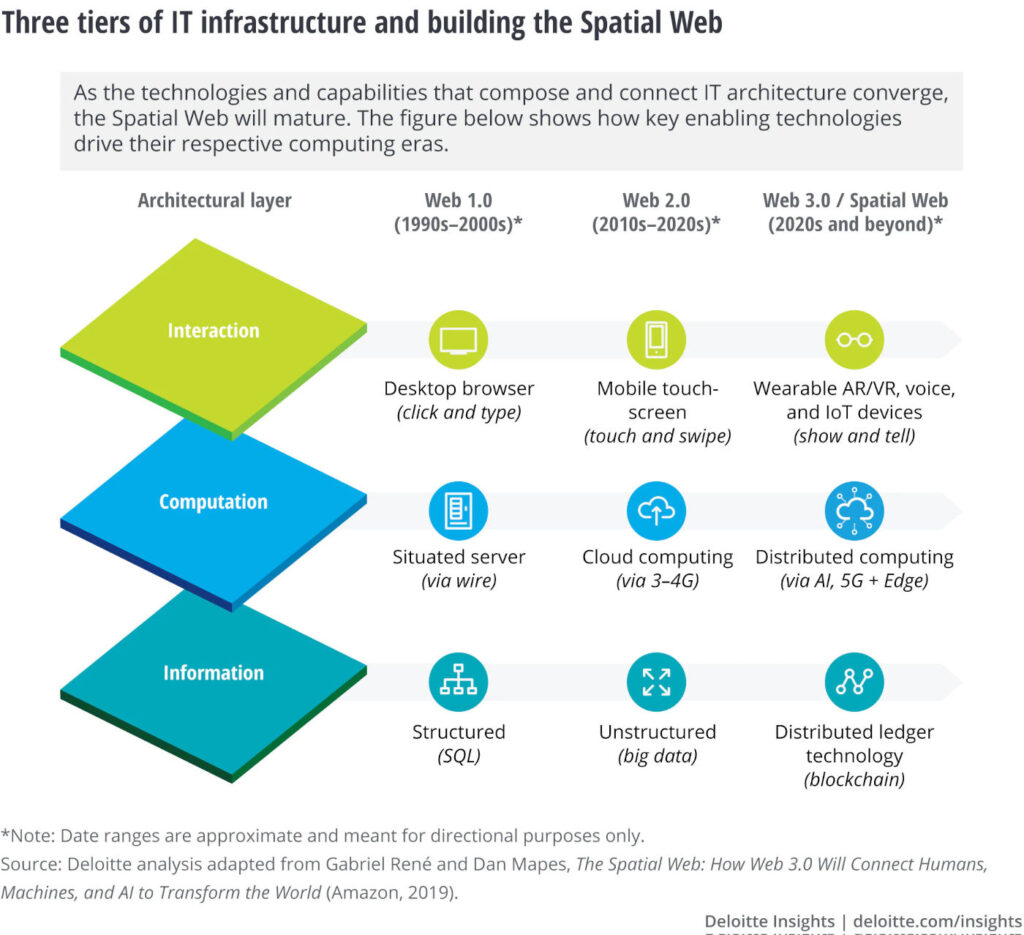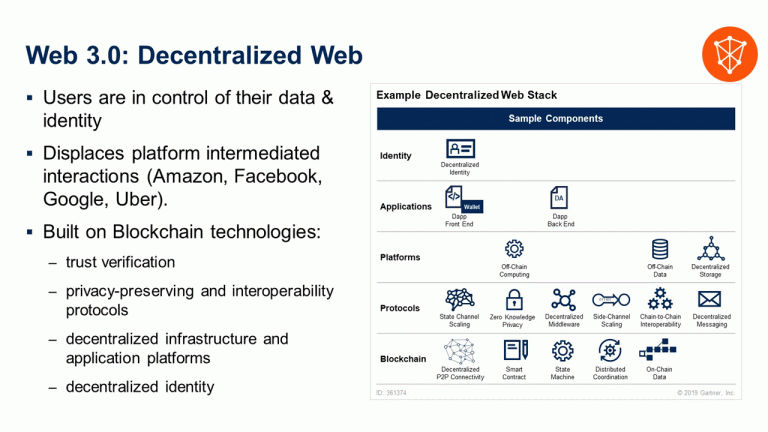Plenty of technologies, like augmented reality, artificial intelligence, blockchain, and speech recognition have matured to practical applications during the last few years. There are lot of communication technologies, such as peer-to-peer social media platforms, wearable devices, self-hosting, IoT (internet of things devices) that are widely used by people. So many tech things going on here and there and everywhere, but do they have anything in common? Well, perhaps it is Web 3.0.
Web 3.0 defined
Web 3.0 is a concept that merges semantic web (software that understands what data is about), decentralization of cloud services and spatial web (digital and real world presented as one), resulting into applications that allow people to naturally interact with services and have more control over their own data.
That sounds a bit grandiose, indicating that there is no absolute definition for Web 3.0 yet. To understand where the concept is coming from, let’s look at how the world of technology sees the Web 3.0 emerging.
Deloitte regards that the key outcome of Web 3.0 era will be Spatial Web that is enabled by technologies like Virtual Reality, wearable devices, Iot, speech and image recognition, distributed computing, and blockchain.
Gartner sees decentralization as the key result from Web 3.0 services and applications. Here is how Gartner’s definition goes: “Blockchain technology will be a foundation protocol of Web 3.0, which will support peer to peer transactions and communications that eliminate the need and functions of Web 2.0 central authorities and ‘gatekeepers‘ such as major search engines and social media sites. … Web 3.0 will transform us from Web 2.0’s monetization via surveillance capitalism and advertising to monetization built directly into the protocol that is equally available to any connected user.”
The Semantic Web is Tim Berners-Lee’s vision for enabling computers to understand meanings: “information is given well-defined meaning, better enabling computers and people to work in cooperation”.
Waiting for the killer app
At the moment (September 2021), it is quite obvious that Web 3.0 is five or more years away from mainstream apps and services. We have the technologies already, we have a number of applications and services, but none of these hasn’t quite formed a coherent experience for ordinary internet users.
What was the breakthrough application of Web 2.0 about twenty years ago? I would argue that blogging is a good candidate. Anyone could become a publisher and interact with readers practically in real time. It was an unbelievable revolution. Later, social media won the hearts and minds of people, creating valuable online communities, but also creating massive problems. Web 3.0 doesn’t have a killer app yet. If I knew what it was, I would be working on it right now.
Who is the big winner?
Examples of applications that introduce obvious benefits for ordinary PC, tablet and phone users are apps that bring together augmented reality, speech recognition, and artificial intelligence. Natural communication with apps and services should please most people. Above all, if Web 3.0 really can shift control of users’ own data back to their own hands, it is a big win for privacy.
Enterprises and public administration organizations will face many hard challenges if they want to move to Web 3.0. Managing central computing resources and databases is more simple and often more cost efficient than in system architectures where resources are distributed all over the internet. Existing systems simply can’t be converted into a new architecture, they must be rewired and rewritten. Perhaps organizations must decentralize themselves before they can adopt Web 3.0. Businesses that currently rule the social media have so much power that they may resist the hopeful ideas of Web 3.0 for quite some time.
If Web 3.0 turns out to be anything like the grand visions present, the undisputable winners of the next era of technology are software developers, sysdmins, and tech experts in general who know their special fields. If the race for decentralized systems starts in earnest, it creates a huge market for tech professionals. The technology and architecture of decentralized systems is much more complex than centralized systems, but the apps have to be even easier to use than apps we use today.
Header image by Robynne Hu.



